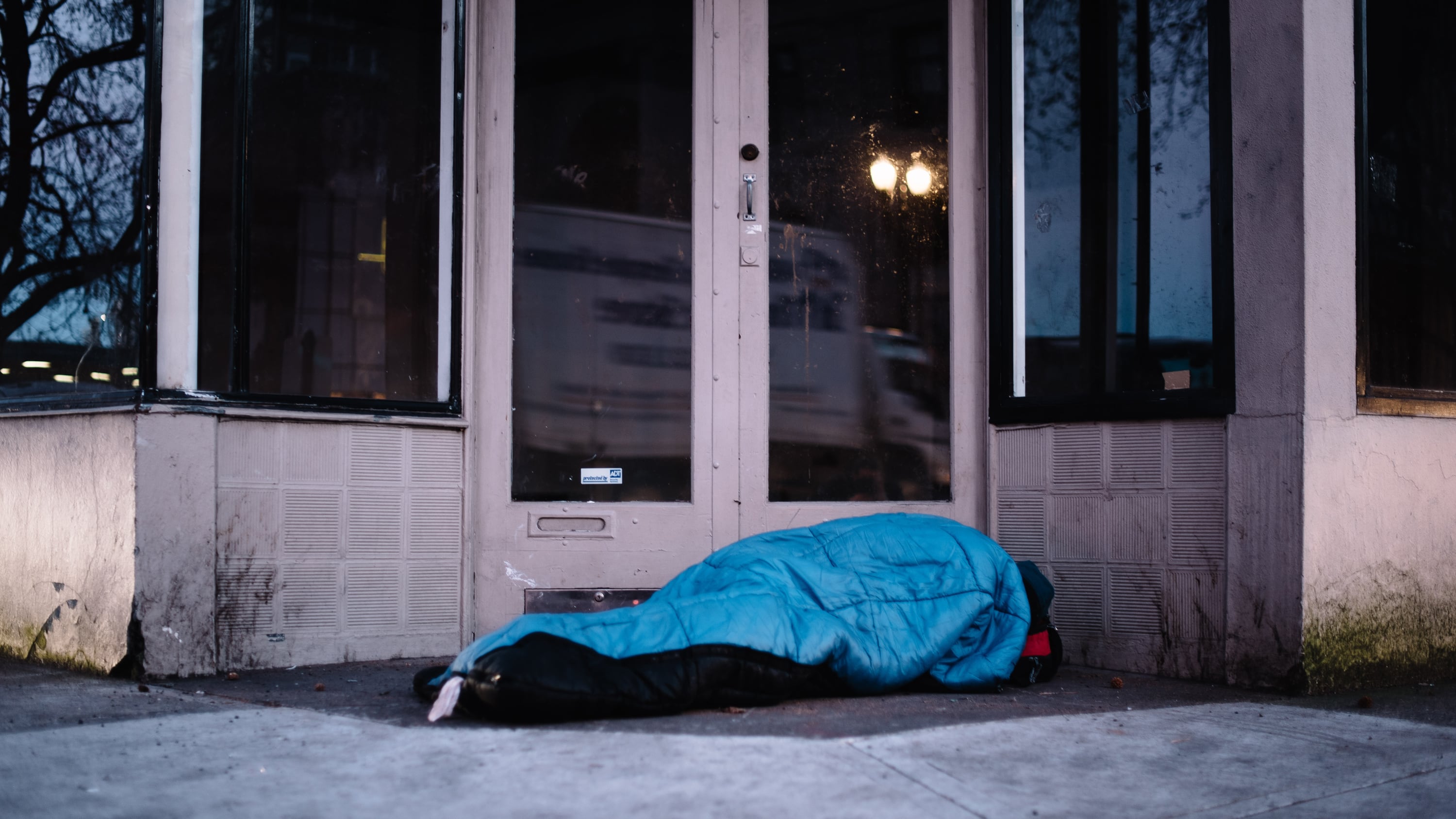The number of people sleeping on the streets in Multnomah County has fallen by 12 percent in the last two years, according to data released today.
The county's point-in-time homeless count, which was last conducted two years ago, shows the number of people officially considered homeless in the county increased by 9.9 percent since 2015. But the number of people living in homeless shelters doubled.
The decline in people on the streets is good news, but it's a limited victory. People are still struggling to find a place to live as rents rise and household incomes haven't kept pace.
"Like communities up and down the West Coast with rapidly rising rents and stagnant incomes for our lowest-income residents, this year's count shows, once again, that thousands of our neighbors experience homelessness on any given night," said Marc Jolin, director of A Home for Everyone and the Joint Office of Homeless Services, in a statement.
"But the data also shows us that our local interventions matter," Jolin continues. "By investing in prevention, housing placement and shelter, we brought the overall unsheltered number down, and ensured that thousands of people who otherwise might have been unsheltered on the night of the count were instead in emergency shelter or in permanent housing."
The drop in people living on the street comes after the county and the city invested an additional $20 million in homeless services in 2016. It may come as a surprise to many in Portland, where there's been a sense of increasing crisis.
In its press release announcing the numbers, the Joint Office of Homeless Services tried to explain that disconnect as a result of greater visibility.
Tent camping has grown over the last year and a half. Some shelters, while more plentiful, still kick people out during the day.
But also the demographics of who's on the streets may make them more visible.
The percentage of people on the streets who report being chronically homeless—that is, who have been on the streets for upwards of two years—has risen.
So too has the percentage of people outside who report having a disability, a category that includes "a mental disability, chronic physical condition, and/or a substance-use disorder," according to the memo written by Jolin.
The full point-in-time report has not been released, so there's no data yet on the geography of where people are living.
Mayor Ted Wheeler, who took office less than two months before this count was taken, pledged as part of his campaign to find a shelter bed for everyone living on the streets of Portland.
But it may prove challenging. The dramatic investment that the city and county made last year before he took office resulted in a 12 percent decline in the number of people on the streets. To bring that number to zero would require dramatic changes.
But Wheeler originally proposed a budget that would have decreased the amount of money for the joint office, and potentially eliminated shelter beds. He has since increased that budget slightly, but it's not clear how he can make good on his campaign pledge without a massive investment.
"We are going to do everything we can to expand shelter space in the the coming year," says the mayor's spokesman, Michael Cox, adding that the city hopes to rely on private partnerships to increase the number of beds.
